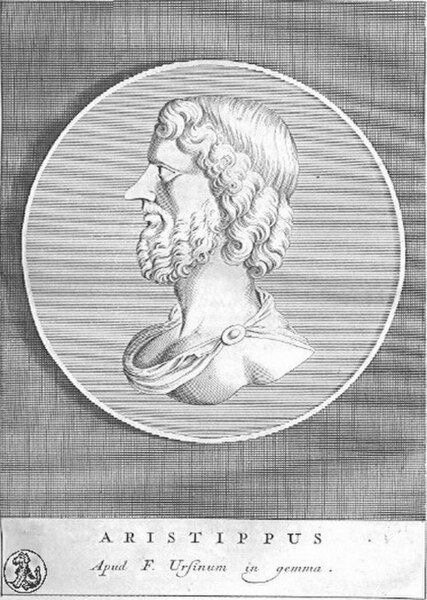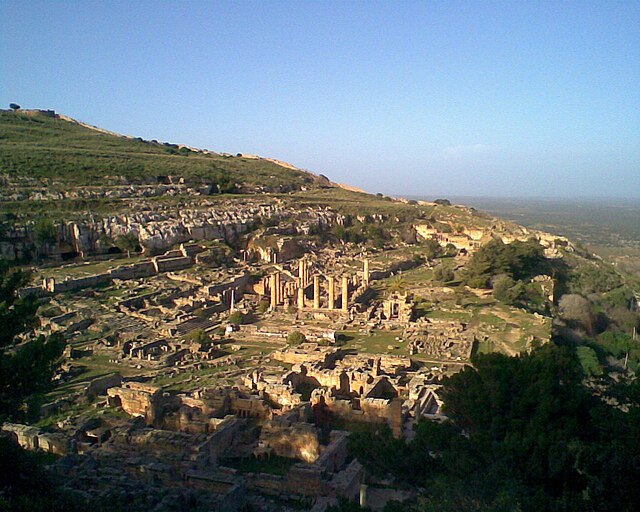Aristippus of Cyrene was a hedonistic Greek philosopher and the founder of the Cyrenaic school of philosophy. He was a pupil of Socrates, but adopted a different philosophical outlook, teaching that the goal of life was to seek pleasure by adapting circumstances to oneself and by maintaining proper control over both adversity and prosperity. His view that pleasure is the only good came to be called ethical hedonism. Due to the ideological and philosophical differences between Socrates and himself, Aristippus faced backlash by Socrates and many of his fellow-pupils. Out of his hedonistic beliefs, Aristippus' most famous phrase was, "I possess, I am not possessed." Despite having two sons, Aristippus identified his daughter Arete as the "intellectual heiress" of his work, resulting in the systematization of his work and the Cyrenaic school of philosophy, by Arete, and her son Aristippus the Younger, Aristippus' grandson, during the later years of his life and after his death.
Aristippus
Cyrene, Libya, birthplace of Aristippus
Cyrene, also sometimes anglicized as Kyrene, was an ancient Greek colony and Roman city near present-day Shahhat in northeastern Libya in North Africa. It was part of the Pentapolis, an important group of five cities in the region, and gave the area its classical and early modern name Cyrenaica.
Sanctuary of Apollo at Cyrene
Arcesilaus II oversees the weighing of silphium for export, on a Laconian kylix, ca. 565-560 BC.
The Temple of Zeus, Cyrene
The Cyrene bronze head in the British Museum (300 BC).





